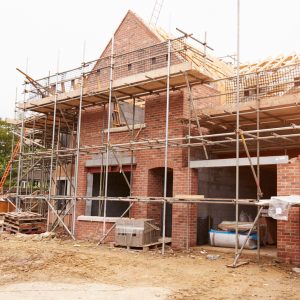
That’s according to new analysis from real estate fund Alliance Fund, which compares the proportion of new-build homes which are under offer or sold subject to contract with the overall stock listings of new homes.
It found that during the final quarter of 2022, demand for new-build homes stood at 18.5 per cent, meaning that around a fifth of new-build homes which were listed for sale had already received a successful offer.
This was down by 10.6 per cent on the previous quarter, and 15.3 per cent on an annual basis.
Alliance Fund broke down the figures on a regional basis, to identify the areas where demand for new-build homes has been most resilient, and where it has dropped most starkly.
Aberdeen holding up; Demand in Cardiff down 27 per cent
Of the 20 major cities analysed by the firm, only Aberdeen avoided a drop in new-build demand in the final quarter. In the city, demand increased marginally by 0.1 per cent.
By contrast, demand for newly-built properties in the quarter dropped significantly in Cardiff, by 27 per cent, followed by Portsmouth (21.5 per cent) and Nottingham (16.3 per cent).
Across the quarter, new-build for sale stock accounted for almost a tenth (8.2 per cent) of the total number of homes listed for sale. That’s up by 1.6 per cent on a quarterly basis, and 0.6 per cent on an annual.
Highest new-build levels in Manchester
Manchester was found to be home to the largest level of new-build stock, with new homes representing around 15.5 per cent of the total homes listed.
Iain Crawford, CEO of Alliance Fund, noted that the end of 2022 resulted in a “challenging landscape” for those hoping to purchase a home, with the combination of rising mortgage costs and fears of house price falls.
He added that this had presented a challenge to developers, who had spent “considerable time and money” bringing homes to market, and were now faced with the prospect of either sitting on that stock until the market rebounds, or selling them at a lower price.
He continued: “At Alliance Fund, we see a cooling sales market as an opportunity to pivot, by deploying developments originally intended for sale within the build to rent market. This ensures that we can maintain a revenue stream for both our investors and ourselves without a loss of momentum with respect to current and future projects.
“The good news is that with buyer confidence starting to return, coupled with an influx of new-build stock reaching the market, we should see a lift in buyer demand in 2023.”
















